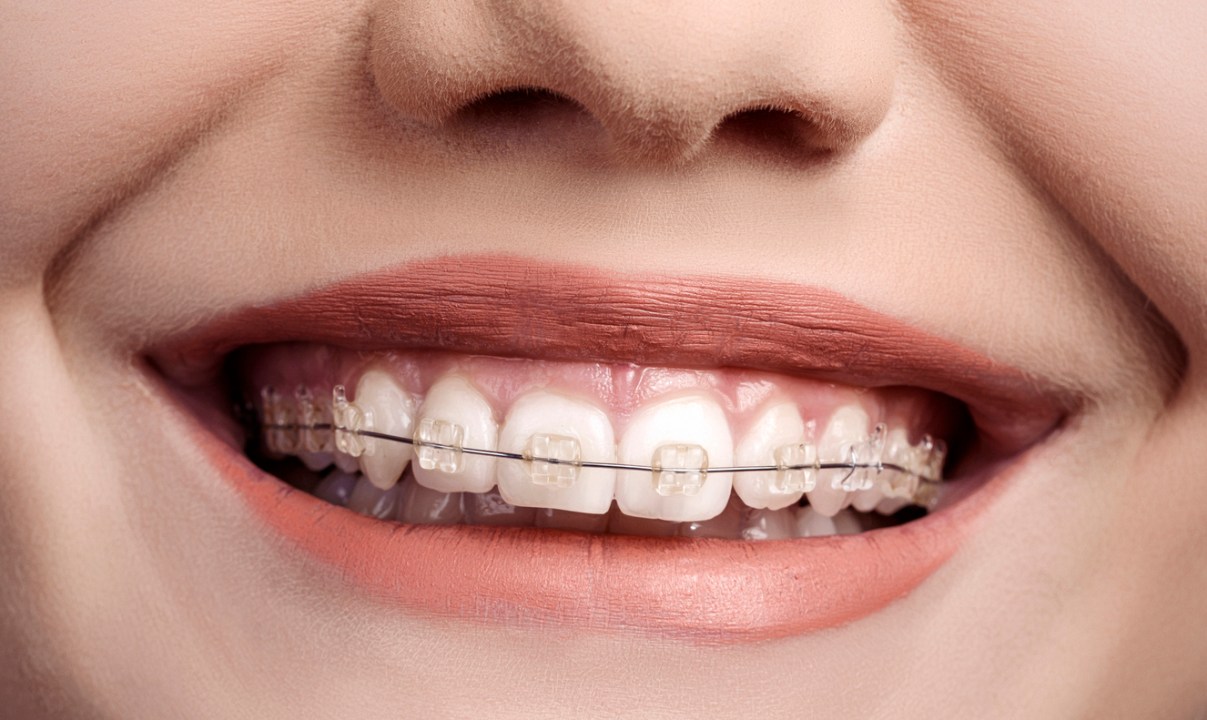When I was a teenager, my grandmother would pick me up from school every week and drive me to the orthodontist, the aptly-named Mrs Crabbe, so she could stick more pieces of metal in my mouth, tighten something up, or twist some new jazzily-coloured elastic bands onto the brackets glued onto my teeth in a vain attempt to distract onlookers from the horror that was my metal-adorned smile.
Don’t expect me to be able to talk properly, and be prepared to be spat at
A buck-toothed child, with overly large teeth for my mouth, I had years of orthodontic work, from the age of about 12 until I was 16 or 17, at which point the braces came off and suddenly I was able to smile with my mouth open – a total revelation. But the years up until then were painful and humiliating, especially the period when I was forced to wear night-time headgear, a sort of bondage-like contraption akin to a scold’s bridle that slotted into brackets glued into the back of my mouth and strapped under my chin – particularly embarrassing to don at bedtime at boarding school. So distressing was this piece of equipment that Mrs Crabbe had to furnish me with a special safety strap that kept it on my head, as otherwise I was wont to undo it and take it off in my sleep.
Despite all this, I visited an orthodontist again last week so that he could screw a load more metal into my mouth, and now I have train tracks. It’s a little different this time: I don’t have to have any teeth pulled out (although I may have to replace a couple of crowns), it should only take six to nine months, and I don’t need the headbrace, thank goodness. So why am I signing myself up to repeat the process and paying several thousands of pounds for the privilege?
The simple answer, of course, is vanity. While I had a good few years of happily grinning away in photos, since having children, my teeth, not fixed into place with any sort of wire when the braces came off (standard practice in the 1990s), have started to slip. Two of the top ones have slid behind their neighbours, and the bottom ones have sort of caved in on themselves, which is both unsightly and makes it difficult to floss.
The crunch point came a couple of years ago on a weekend away when my husband and I took a selfie at Edinburgh Castle – an absolute shocker. I looked like an (admittedly very happy) witch: grey-haired and snaggle-toothed. After that I basically stopped smiling with my mouth open, unless I could possibly help it. And I started to think about getting braces again. It took a while, mind you: dental work is eye-wateringly expensive. The first dentist I visited quoted me five grand to get my teeth fixed, and had I opted for the most expensive ‘incognito’ lingual brace, that goes on the back of your teeth, it would have set me back nearly £9,000 (the cost is linked to the price of gold, as they’re made of gold alloy).
But I shopped around, and eventually took the plunge, reasoning that doing it now, in my 40s, would give me enough years of happy grinning to make the cost worth it, that getting my teeth straightened would be better for my dental health in that I’d actually be able to clean them properly, and that a newly dazzling smile would hopefully distract people from my increasingly wrinkled forehead (although now that I’ve embarked on my quest for self-improvement I’ve also started to investigate Botox).
I’m not the only one: a quick glance at the mouths of most of my fellow 40-something friends reveal the telltale, slightly toothy grin of an Invisalign brace – the most popular option, as you can barely see it’s there. According to statistics from the British Orthodontic Society, 76 per cent of orthodontists have seen a rise in adult patients seeking braces. They attribute the rise to a post-pandemic realisation of how dreadful we all looked on Zoom. I prefer to interpret it as a reinvention of the classic midlife crisis, only with braces instead of valium.
I like to think I am out and proud in my quest for straight fangs, in that I’ve gone for metal braces instead of the invisible (ish) Invisalign. The truth is rather more prosaic: the metal ones are cheaper, my orthodontist advised that they would do the job more quickly, and I knew I would never bother to clean them properly, including every time I took them out to eat, if I had opted for the removable ones. That said, a week in, my teeth aching and unable to look forward to anything remotely chewy this summer, I’m wondering why vanity didn’t entirely prevail. Then I remember yesterday, when I went to collect my new glasses (blind as well as snaggle-toothed) and the shop assistant popped out his Invisalign tray to show me his teeth. Gross.
I’m having the bottom set of brackets fitted soon. If you see me after then, don’t expect me to be able to talk properly, and be prepared to be spat at. Hopefully it’ll all be worth it for the straight smile at the end.








Comments